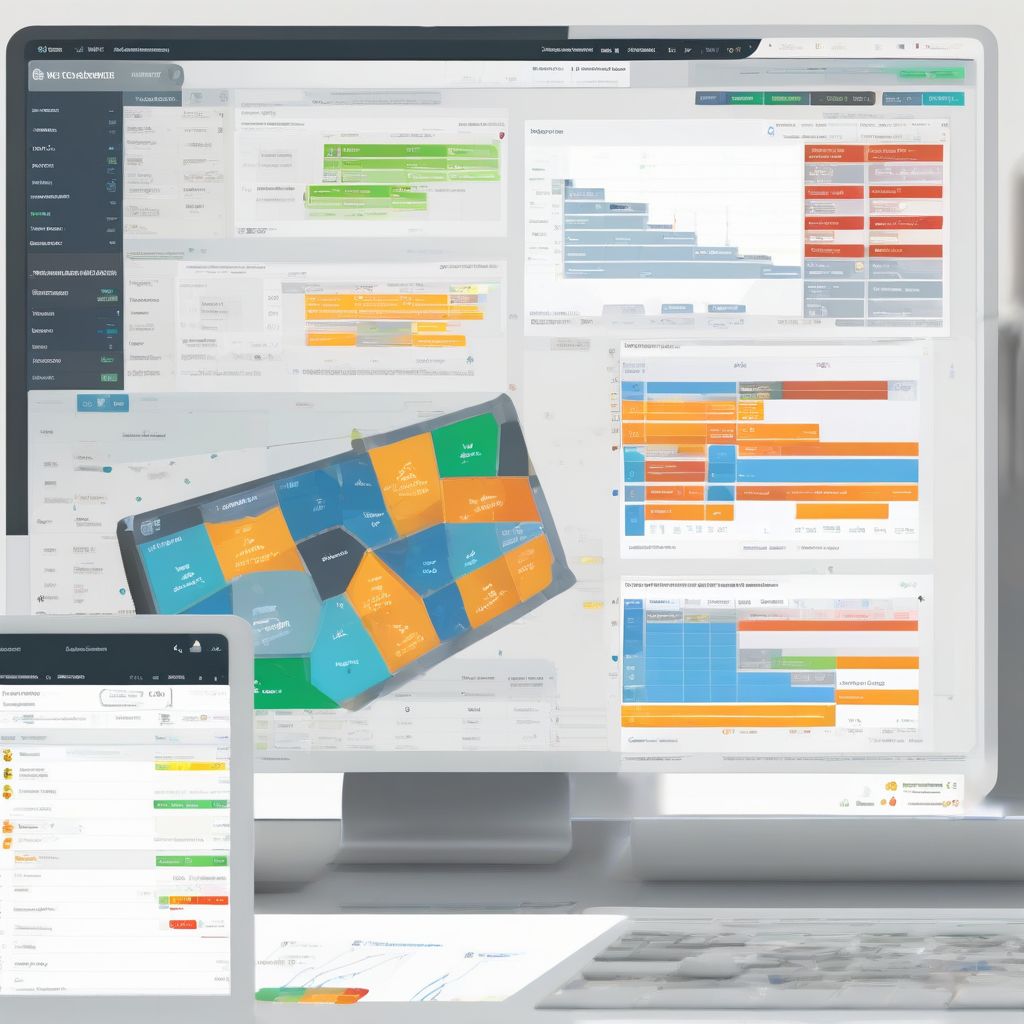In today’s fast-paced construction industry, efficiency and accuracy are paramount. Projects are becoming increasingly complex, demanding a higher level of organization and control. This is where Management Construction Software comes in, offering a comprehensive solution to streamline operations, improve collaboration, and boost overall project success.
What is Management Construction Software?
Management construction software refers to a suite of digital tools designed to assist construction professionals in managing various aspects of a project lifecycle. From pre-construction planning and budgeting to resource allocation, scheduling, and progress tracking, this software acts as a centralized hub for all project-related information.
Unpacking the Benefits: Why Construction Management Software is Crucial
Implementing construction management software can be transformative for construction companies of all sizes. Let’s delve into some key advantages:
1. Enhanced Project Planning and Scheduling:
- Software like this allows for the creation of detailed project plans and schedules, including dependencies and milestones.
- Real-time updates keep everyone informed about progress, and potential delays can be identified early on.
2. Streamlined Communication and Collaboration:
- These platforms provide a centralized platform for communication, ensuring everyone involved in the project has access to the latest information.
- This real-time communication reduces misunderstandings, prevents costly errors, and enhances team collaboration.
3. Effective Cost Management and Control:
- Management construction software empowers managers to create accurate budgets, track expenses, and monitor cash flow.
- This real-time financial visibility enables better cost control, reduces the risk of overruns, and improves profitability.
4. Improved Resource Management:
- Construction software provides tools for optimizing resource allocation, ensuring that the right people, equipment, and materials are available at the right time.
- This optimization minimizes downtime, increases productivity, and helps prevent budget overruns.
5. Enhanced Document Management and Control:
- Construction projects involve a vast amount of documentation, and managing these documents efficiently is crucial.
- Construction management software offers a secure and centralized repository for storing, organizing, and accessing project documents.
chuyentiennhanh.org/wp-content/uploads/2024/08/construction-management-software-dashboard-66b6ee.jpg" alt="Construction Management Software Dashboard" width="1024" height="1024">Construction Management Software Dashboard
Key Features to Look for in Management Construction Software:
When choosing construction management software, it is essential to consider the specific needs of your business. However, some key features to look for include:
- Project Management: Task management, scheduling, Gantt charts, critical path analysis.
- Financial Management: Budgeting, cost tracking, invoicing, payment processing.
- Document Management: Storage, version control, access control, collaboration tools.
- Communication and Collaboration: Real-time messaging, file sharing, reporting.
- Mobile Access: Accessibility from smartphones and tablets for on-site updates.
Conclusion: Building a Solid Foundation for Success
Management construction software has become an indispensable tool for construction companies aiming for greater efficiency, profitability, and success. By streamlining operations, improving collaboration, and providing real-time insights, this software empowers businesses to navigate the complexities of construction projects with confidence. As technology continues to evolve, embracing digital solutions like management construction software will be key to staying ahead in the dynamic construction landscape. Explore the options available and find the software that aligns best with your company’s unique needs and goals.
For further insights into optimizing your construction business operations, explore more articles on our website about project management, financial management, and industry best practices.
